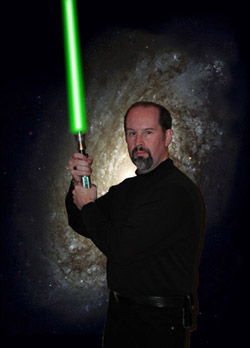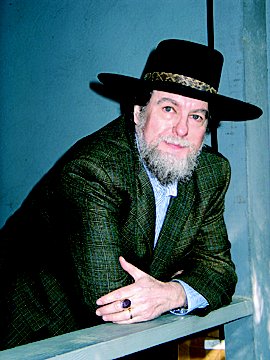Of the good fortune which the valorous Don Quixote had
in the terrifying and never-before-imagined adventure of the windmills said:
At this point they caught sight of thirty or forty windmills which were standing on the plain there, and no sooner had Don Quixote laid eyes upon them than he turned to his squire and said, “Fortune is guiding our affairs better than we could have wished; for you see there before you, friend Sancho Panza, some thirty or more lawless giants which whom I mean to do battle. I shall deprive them of their lives, and with the spoils from this encounter we shall begin to enrich ourselves, for this is righteous warfare, and it is a great service to God to remove so accursed a breed from the face of the earth.”
“What giants?” said Sancho Panza.
“Those that you see there,” replied his master, “those with the long arms some of which are as much as two leagues in length.”
“But look, your Grace, those are not giants but windmills, and what appear to be arms are their wings which, when whirled in the breeze, cause the millstone to go.”
“It is plain to be seen,” said Don Quixote, “that you have had little experience in this matter of adventures. If you are afraid, go off to one side and say your prayers while I am engaging them in fierce, unequal combat.”
Saying this, he gave spurs to his steed Rocinante, without paying any heed to Sancho’s warning that these were truly windmills and not giants that he was riding forth to attack. Nor even when he was close upon them did he perceive what they really were, but shouted at the top of his lungs, “Do not seek to flee, cowards and vile creatures that you are, for it is but a single knight with whom you have to deal!”
At that moment a little wind came up and the big wings began turning.
“Though you flourish as many arms as did the giant Briareus,” said Don Quixote when he perceived this, “you still shall have to answer to me.”
He thereupon commended himself with all his heart to his lady Dulcinea, beseeching her to succor him in this peril; and, being well covered with his shield and with his lance at rest, he bore down upon them at a full gallop and fell upon the first mill that stood in his way, giving a thrust at the wing, which was whirling at such a speed that his lance was broken into bits and both horse and horseman went rolling over the plain, very much battered indeed. Sancho upon his donkey came hurrying to his master’s assistance as fast as he could, but when he reached the spot, the knight was unable to move, so great was the shock with which he and Rocinante had hit the ground.
“God help us!” exclaimed Sancho, “did I not tell your Grace to look well, that those were nothing but windmills, a fact which no one could fail to see unless he had other mills of the same sort in his head?”
“Be quiet, friend Sancho,” said Don Quixote. “Such are the fortunes of war, which more than any other are subject to constant change. What is more, when I come to think of it, I am sure that this must be the work of that magician Frestón, the one who robbed me of my study and my books, and who has thus changed the giants into windmills in order to deprive me of the glory of overcoming them, so great is the enmity that he bears me; but in the end his evil arts shall not prevail against this trusty sword of mine.”
“May God’s will be done,” was Sancho Panza’s response. And with the aid of his squire the knight was once more mounted on Rocinante, who stood there with one shoulder half out of joint. And so, speaking of the adventure that had just befallen them, they continued along the Puerto Lápice highway; for there, Don Quixote said, they could not fail to find many and varied adventures, this being a much traveled thoroughfare. The only thing was, the knight was exceedingly downcast over the loss of his lance.
“I remember,” he said to his squire, “having read of a Spanish knight by the name of Diego Pérez de Vargas, who, having broken his sword in battle, tore from an oak a heavy bough or branch and with it did such feats of valor that day, and pounded so many Moors, that he came to be known as Machuca, and he and his descendants from that day forth have been called Vargas y Machuca. I tell you this because I too intend to provide myself with just such a bough as the one he wielded, and with it I propose to do such exploits that you shall deem yourself fortunate to have been found worthy to come with me and behold and witness things that are almost beyond belief.”
“God’s will be done,” said Sancho. “I believe everything that your Grace says; but straighten yourself up in the saddle a little, for you seem to be slipping down on one side, owing, no doubt, to the shaking-up that you received in your fall.”
“Ah, that is the truth,“ replied Don Quixote, “and if I do not speak of my sufferings, it is for the reason that it is not permitted knights-errant to complain of any wound whatsoever, even though their bowels may be dropping out.”
“If that is the way it is,” said Sancho, “I have nothing more to say; but, God knows, it would suit me better if your Grace did complain when something hurts him. I can assure you that I mean to do so, over the least little thing that ails me — that is, unless the same rule applies to squires as well.”
Don Quixote laughed long and heartily over Sancho’s simplicity, telling him that he might complain as much as he liked and where and when he liked, whether he had good cause or not; for he had read nothing to the contrary in the ordinances of chivalry. Sancho then called his master’s attention to the fact that it was time to eat. The knight replied that he himself had no need of food at the moment, but his squire might eat whenever he chose. Having been granted this permission, Sancho seated himself as best he could upon his beast, and, taking out from his saddlebags the provisions that he had stored there, he rode along leisurely behind his master, munching his victuals and taking a good, hearty swig now and then at the leather flask in a manner that might well have caused the biggest-bellied tavernkeeper of Málaga to envy him. Between draughts he gave not so much as a thought to any promise that his master might have made him, nor did he look upon it as any hardship, but rather as good sport, to go in quest of adventures however hazardous they might be. . . .
 .
. .
.
















